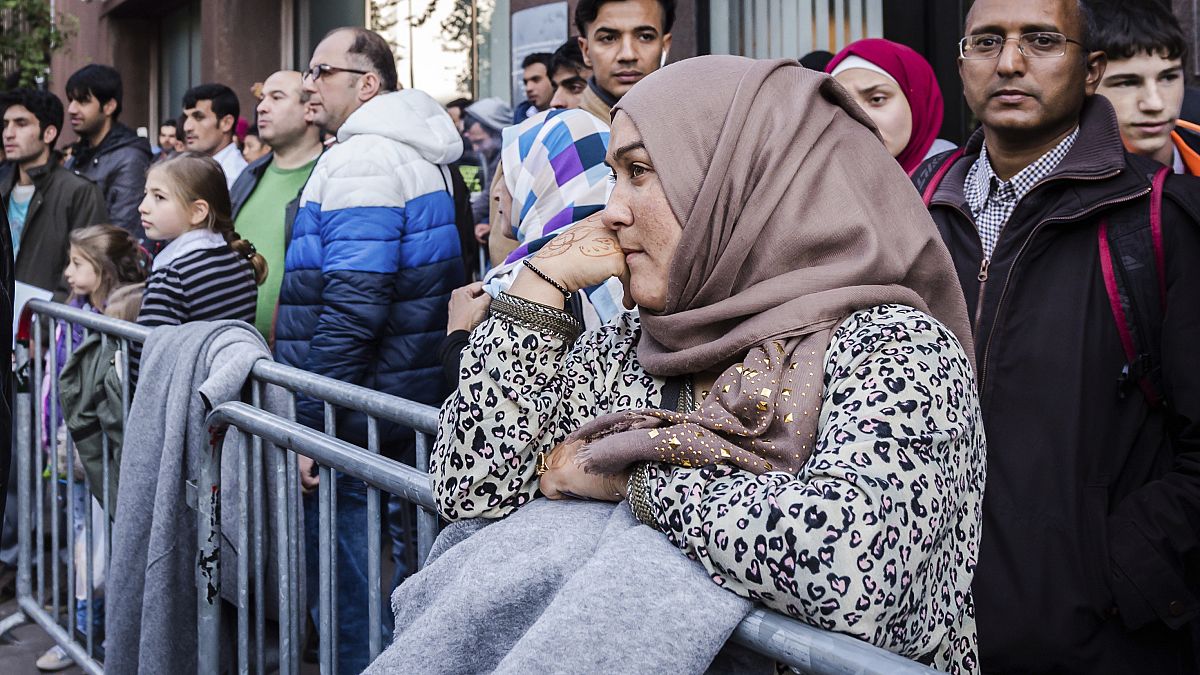Surveys on racism in the EU show the problem is becoming more acute.
Only two of the European Parliaments seven political parties explicitly call for the swift adoption of a stalled directive to combat discrimination ahead of European elections despite NGOs warning of increased racism.
Euronews looked at the manifestos of the main political parties vying for some of the 720 seats up for grabs in the European Parliament following the June 6-9 EU-wide election and found that only the Socialists and Democrats (S&D) and the Left clearly promised to press for the adoption of the directive.
The European People’s Party (EPP), Renew Europe and the Greens/EFA make reference to the need to fight against all forms of discrimination, racism and exclusion but do not mention the legislation.
The European Network Against Racism (ENAR), which urged candidates to sign a pledge to combat racism during their mandate in the lead-up to the bloc-wide ballot, is for instance calling for the EU’s Anti-racism Action Plan to be extended beyond 2025 and for some revision to the current blocked text of the directive.
“We believe that, perhaps, this is an opportunity to evaluate the text and adopt a renewed non-discrimination legal framework that can cover all forms of discrimination, because there are gaps in the current text of the Equal Treatment Directive,” Julie Pascoët, ENAR’s Policy Coordinator, told Euronews.
“There are things that remain unresolved: the racialisation of migration policies, the exploitative economic system, the anti-Muslim narrative,” she added.
‘An upward trend’
The European Commission made a first attempt in 2008 to create a comprehensive law on combating all types of discrimination, in addition to existing rules for the labour market. MEPs adopted several resolutions, held a plenary debate on the topic in October 2019, and approved their last position in November 2022.
But the European Council, which brings together the 27 member states, has been blocking the directive with some governments arguing that it violates national competence and that it would be too expensive to implement.
The Swedish presidency of the Council of the EU published a progress report in May 2023, but it was not possible to reach the necessary votes from member states to unblock the directive.
According to Swedish MEP Alice Kuhnke (Greens/EFA), the rapporteur for the EU Anti-Discrimination Directive, the current political climate, which should see hard and far right forces gain greater influence in the European Parliament, makes the adoption of the text more urgent.
“I think there are several member states that are hesitant and don’t want this anti-discrimination directive to become a reality. They fear some ‘monster’ that doesn’t exist and I also think we need to call them out,” she told Euronews.
“It shouldn’t be acceptable to accept discrimination,” said Kuhnke, who, as a former minister for culture and democracy, changed anti-discrimination legislation in Sweden.
“We know for sure that Black people living in the EU, but also LGBTQI+ people and people of Roma origin, are some of the people who face discrimination in their everyday lives. And the tragic thing is that this is not a downward trend, it is an upward trend,” the MEP told Euronews.
New migration pact could worsen situation
A Eurobarometre survey released in December 2023 found that over half of the more than 26,400 respondents across the 27 EU states say there is widespread discrimination in their country on the basis of being a Roma, skin colour, ethnic origin, gender identity or sexual orientation.
About a fifth of respondents meanwhile said they have personally felt discriminated against or experienced harassment in the previous 12 months, a four percentage point jump from a 2019 survey.
The European Union Agency for Fundamental Rights (FRA) meanwhile found in a survey released last October that 45% of Black people say they have experienced racial discrimination in the five years before the survey, compared to 39% in a 2018 edition.
The recently adopted New Pact on Migration and Asylum could inflame things further, according to Kuhnke.
“I am afraid that the migration pact and the various parts of it will not help us combat racism and discrimination. Quite the opposite,” she said.
ENAR is meanwhile also pushing for parties to have a more diverse list of candidates, in particular the progressive forces.
“To what extent do European institutions really represent the diversity of people in Europe and beyond? There has definitely been a deficit in the way racialised people, for example, are represented in the largest Democratic house in the European Union,” Pascoët said.

